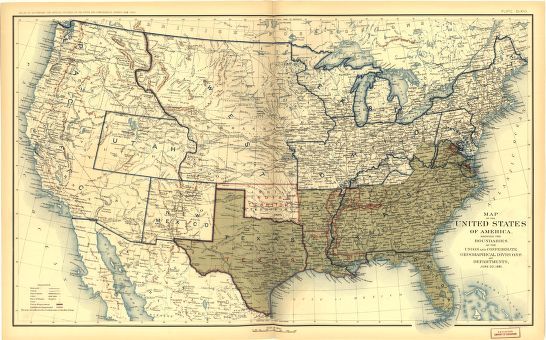 Beyond the war’s battlefields and among the personal lives of Baptist soldiers and civilians lurk tens of thousands of Baptist stories. Little noticed as most of these stories are, many offer insights into Baptist life that stretch far beyond any one individual.
Beyond the war’s battlefields and among the personal lives of Baptist soldiers and civilians lurk tens of thousands of Baptist stories. Little noticed as most of these stories are, many offer insights into Baptist life that stretch far beyond any one individual.
One such representative story is that of Baptist Finnick, an 18-year old former slave who had been owned by and worked the farm of Joseph Johnson near St. Clement’s Bay in St. Mary’s County in the border state of Maryland. Now emancipated, Finnick today enlists in the U.S. Army, mustering in on January 5, 1864 with the 19th Regiment U.S. Colored Troops at Camp Stanton, Maryland.
Finnick, like dozens if not hundreds of other former slaves enrolling in the Union Army this year, bears a name which most likely reflects his faith: Baptist. The Baptist faith, typically known for a fervent worship style and a historical belief in the spiritual equality of congregational members, had long attracted a larger percentage of slaves than did other denominations during the antebellum era. By the time the war erupted, many black slaves strongly identified with the Baptist faith–albeit not with white Baptists’ biblical-based racism–on a personal level. In some instances, some individuals are given names reflective of this bond. Finnick is but one of many who, as freedmen, enroll in the United States Army.
Finnick’s life, unfortunately, is a brief one. Although he survives the war following many battle engagements with the 19th, he dies on August 29, 1866 while working as a Union Army courier in Texas. Finnick’s death is by drowning as he attempts to cross the Rio Grande River near Barranca Ranch, Hidalgo, Texas.
A far different Baptist story that is connected to Finnick’s only by a mutual faith and the state of Texas is that of Baptist minister Benjamin F. Parker (1819-1896). While Finnick is enlisting in the U.S. Army today, Parker and wife Irena join the Pilgrim Predestinarian Regular Baptist Church of Jesus near Elkhart, Texas, and are baptized.
Parker moved to Texas in 1833, having traveled there by wagon train from Crawford County, Illinois with his parents and siblings. The family traveled to Texas with a Baptist congregation. Members of the Parker clan received acreage from land grants, as did the young Benjamin, who was given his allotment of 1,476 acres designated for single men. Becoming one of the earliest settlers in what is now Anderson County, Parker married Irena Douthell in 1846. Like many other western settlers, he made a living by holding down several occupations. A farmer, surveyor and schoolteacher, Parker did well enough considering a lack of formal education. Entering politics, he served as a Democrat from Anderson County in the Texas Legislature in 1855 and 1859.
Yet Benjamin Parker apparently adopted his parent’s faith later in life, evidenced by his baptism today. Wasting little time, however, Parker immediately voices a call from God to preach and is licensed to preach by the Pilgrim Church on January 16, 1864. His ordination by the Union Primitive Baptist Association follows on October 9, 1864. Also elected as clerk by the association, Parker retains this position until October 1891. Selected as pastor of the Pilgrim congregation on July 17, 1869, Parker remains in the same pulpit until his death on December 26, 1896, his last four years in the pastorate marked by physical blindness. Upon his death, Parker is buried in the church’s cemetery.
Benjamin Parker’s story is but one of many Baptists who move westward during the Civil War-era and immediately thereafter and who collectively build up and grow the Baptist faith on the frontier, one congregation at a time.
Sources: Baptist Finnick, Company E, 19th Regiment, U.S. Colored Troops (link); National Park Service Soldiers and Sailors Database listing of Union soldiers named Baptist (link) and Confederate soldiers named Baptist (link); Benjamin F. Parker, biographical sketch, Texas Baptist Historical Association (link)


